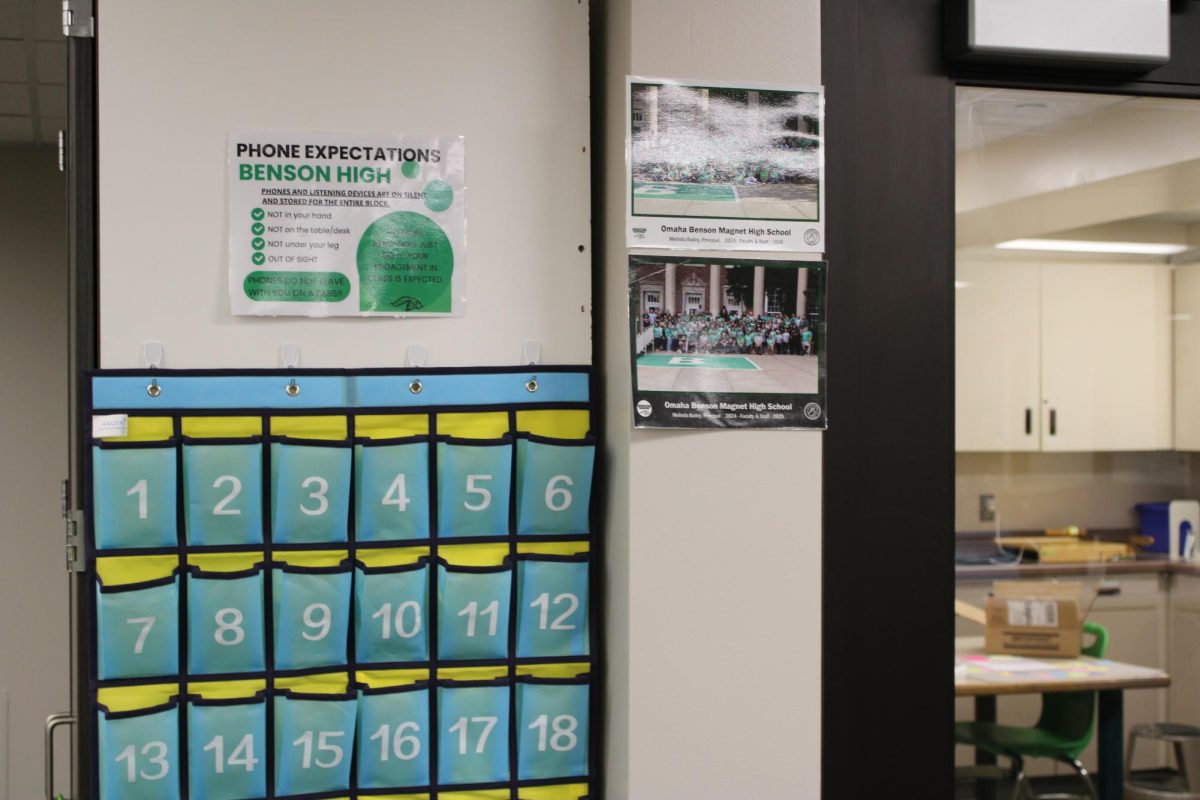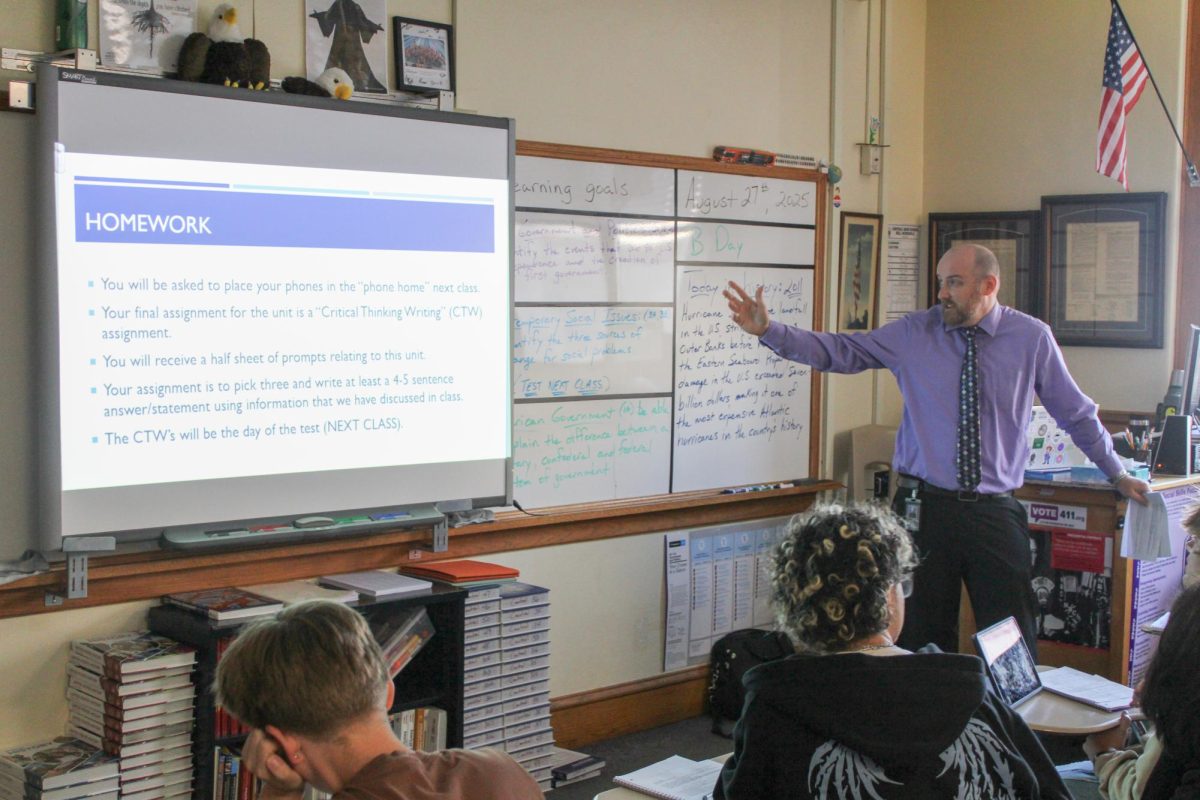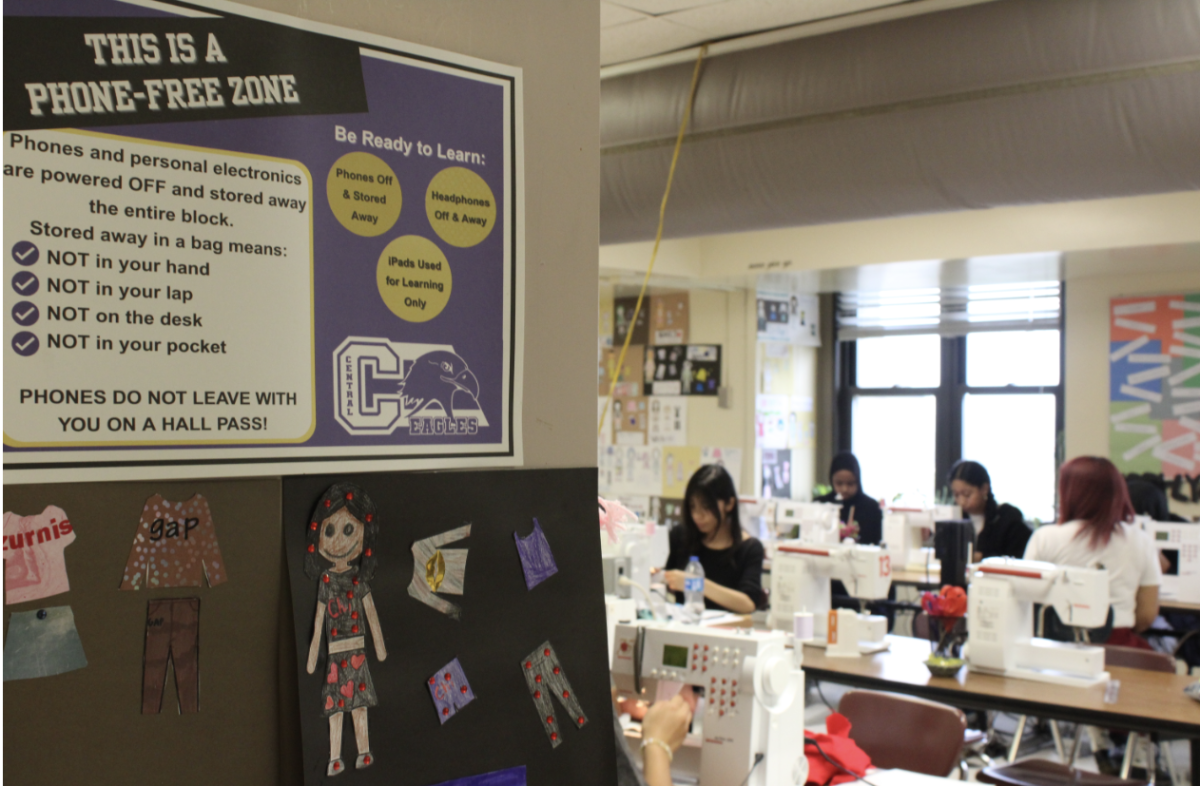“If you think government doesn’t affect you, look at this bill,” government teacher Jordan Boyer told his classes at the start of this year when discussing personal electronic device use during class. Legislative Bill 140 rocked Nebraska schools this August, reminding students that government does in fact affect their daily life.
LB 140, which required school boards to adopt policies prohibiting phones during instructional time, passed at the end of last school year and took effect this fall. While many aspects of the bill are debated, one thing has become apparent: many think this is the first time government has affected them. The reality is that the government affects us every day, and it is time for students to start paying attention.
For many students, LB 140 should serve as a wake-up call. Until now, the government may have felt distant. When students think of government they often think of something reserved for politicians arguing in Washington. But suddenly, a law written and passed by 48 of 49 state lawmakers in Lincoln reached straight into classrooms, affecting how students learn, socialize and go about the school day.
Government decisions determine far more for students than just phone use in school. Many students who are employed pay taxes, at least if they earn enough. Additionally, students feel the effect of government when purchasing items at a grocery store, when discovering what classes are available to take, when jobs schedule shifts for students, when learning how much they may pay for postsecondary education, and whether our school lunch is free. Some policies seem invisible, but every student is already living with the effects of policymaking.
According to the Omaha Public Schools, 65.6% of Central students were eligible for educational benefits in the 2024-25 school year. Title I, which provides funding to schools with a sizable percentage of low-income students, is the reason Central receives free lunch and other opportunities most schools do not receive.
If Title I did not exist, Central’s operations would look completely different, which is why this government program is so important. The talk of ending the Department of Education at the federal level is another point where students should pay attention and get involved. We face the consequences of such monumental decisions.
Paying attention is optional, but doing so is essential. Students today are tomorrow’s voters, workers and leaders. Understanding how government runs and holding it accountable gives young people a voice in shaping the world they want to live in. Whether you agree or disagree with LB 140, students should use it as a reminder that ignorance only leaves decisions in the hands of others. If the government affects our daily lives regardless, why not pay attention and speak up?


























